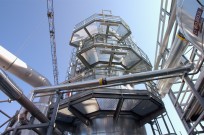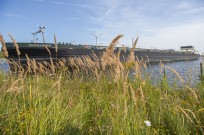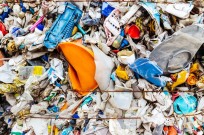Port of Amsterdam is making data available via an open data portal. These data can be used free of charge for digital innovations and improvements. You can also use them for digital links and optimising your own processes.
Decree on the restriction of the use of exhaust gas cleaning systems (scrubbers) in Amsterdam
Publication of the Decree restricting the use of exhaust gas cleaning systems
As a sustainable port, Port of Amsterdam has a duty of care towards the marine environment. It wants to limit marine pollution and soil pollution as much as possible. Because when using an exhaust gas scrubber in open loop mode in combination with fuel oil with more than 0.1 mass % sulphur, washing water is constantly discharged at the berth, the use of this technology for moored seagoing vessels within the municipality of Amsterdam is prohibited.
Everything you need to know for your visit to Amsterdam.
-

Argent Energy, a European biofuels manufacturer, opened Europe's largest technical-grade glycerine plant in the Amsterdam port area on Friday, September 27. The glycerine plant will upgrade by-products of the biodiesel production process to a product suitable for wide use in the chemical industry.
The terminals in the Amsterdam port region are highly experienced in storing, transshipping and processing biomass. Amsterdam is situated in the ARA hub and has excellent connections to the European hinterland.
-

Barges can now apply for a berth at the Sumatra or Suriname quay for a longer period, namely 3 weeks in addition to the standard period of 7 days. So in total for a period of four weeks.
-

Port of Amsterdam has placed containers at various locations where bargees can dispose their waste free of charge. These bins are emptied every Tuesday or earlier if the container is full.